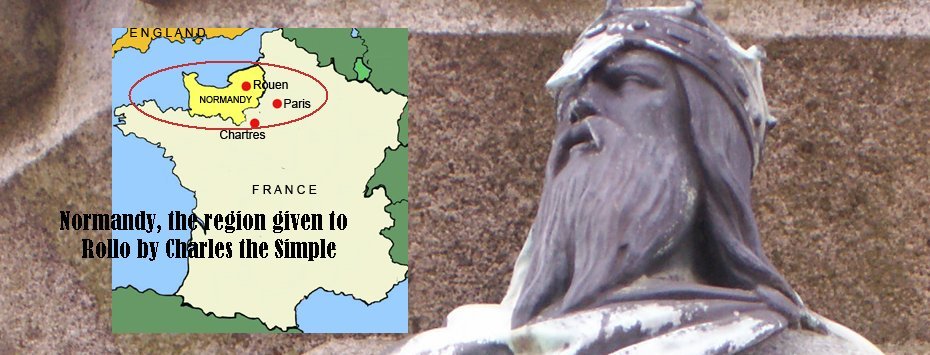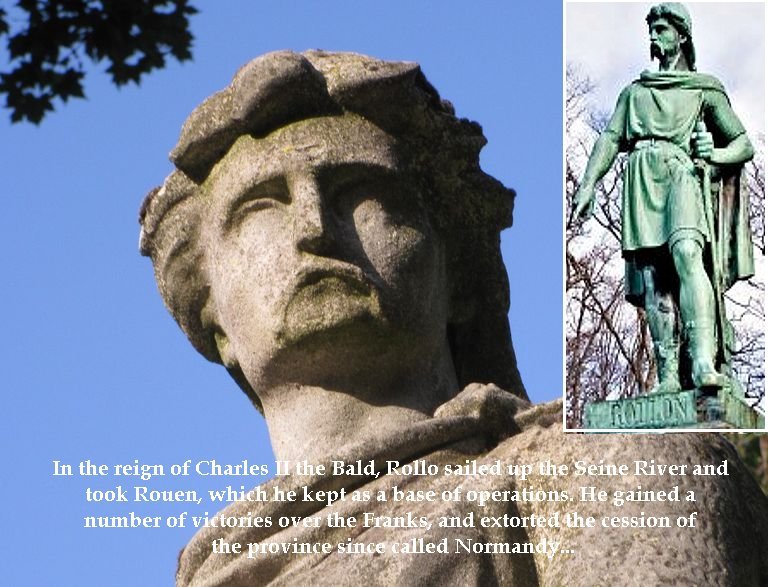Rollo: Viking Sea Lord, Chieftain, Lone Wolf And The First Ruler Of Normandy
A. Sutherland - AncientPages.com - At the height of their glory, the Vikings formed many new Scandinavian dynasties. At first, they were considered foreigners, but they eventually integrated with local communities, even religiously.
One of them was Rollo (also known as Gånge-Rolf), an ancestor of the famous William the Conqueror, who led the conquest of Normans to England and became king of the country in 1066.
Believed to have lived between 846 and 931 AD, the first historical account of Rollo detailed his leadership of the Vikings during their siege of Paris from 885 to 6 AD.
Mentioned in Icelandic sagas, as a man of high social status, Rollo is often referred to as Rolf the Walker ("Ganger-Hrolf, "in Old Danish) because he had such an imposing figure that his horse could not carry him and was obliged to travel on foot.
His impressive figure was richly decorated with golden arm rings, amulets, and the hammer of the god Thor. By a treaty in 911, the Viking chieftain, Rollo, and his followers were granted part of the French coast called Normandy (or the "land of the Normans"). In return, Rollo was to swear loyalty to King Charles the Simple, look to the defense of his domain, and be baptized as a Christian.
The Viking chieftain kept his bargain with the king, and the treaty was beneficial to them both. Rollo's presence in Normandy was legitimate; he settled in the city of Rouen, which he seized earlier, in 876, and there were no further Viking raids into Charles's territory and in times of emergency, Rollo sent his met-at-arms at Charles's disposal.
In his book "The Vikings," Robert Wernick mentions a local tradition that describes Rollo as a brutal man:
"…when some peasants sought the right to hunt and fish in Rollo's woods, lakes, and rivers, he dispatched his uncle, Count Rudolph, to cut off a hand and a foot of each of the would-be-poachers. But he was also sharp-witted and practical. He let himself be baptized, and he lost no time in restoring the churches that he and his fellow Vikings had sacked…"
Statue of Viking Rollo in Ålesund, Norway. Image credit: Nils Harald Ånstad.
"… It was later recounted that when he was on his deathbed, he asked to be buried in the cathedral of Rouen and he ordered large sums of gold to be given to Christian churches…"
He continued to reign over the region of Normandy until at least 928, according to a charter of 918. By the end of the century, these settlers spoke French and had lost their Scandinavian heritage.
Rollo was succeeded by his son, William Longsword (c. 893 -942), William, the second ruler of Normandy, from 927 until his assassination in 942. The offspring of Rollo and his followers became known as the Normans.
After the Norman conquest of England and their conquest of southern Italy and Sicily over the following two centuries, their descendants came to rule Norman England (the House of Normandy), the Kingdom of Sicily (the Kings of Sicily) as well as the Principality of Antioch from the 10th to 12th century, leaving behind a lasting legacy in the historical records of the European continent and even the countries of Near East.
Much Debate On Rollo's True Origin
Like most other figures dated to early history, also Rollo's roots are shrouded in mystery.
Medieval chronicles from Norway and Iceland assert that Rollo and another figure known as Gange-Rolv (also known as Rolv Ganger) were one and the same person. On the other hand, modern Danish historians do not agree with these claims and insist that Rollo was Danish.
In the spring of 2014, a report published by Michael R. Maglio stated that the DNA extracted from the remnants of Rollo’s descendants disclosed them to be of Danish origin. This theory was also criticized, and it was said that the researchers had misidentified corpses.
An 11th-century Benedictine monk and historian wrote: "Rollo sailed boldly from Norway with his fleet to the Christian coast." Likewise, the 12th-century English historian William of Malmesbury stated that Rollo was "born of noble lineage among the Norwegians."
Also, according to one legend, he was a Norwegian scion of a family that had left Norway as outlaws and arrived in northern Scotland to seek freedom and wealth. From there, he took part in many Viking raids, reaching the coast of England and France.
An entirely different account was given by a hisorian of early Norman history, Dudo of St. Quentin, born about 965, who claimed that Rollo and his brother, Gurim (or Gorm) were sons of an influential noble man in Dacia, a province covering the entire Nordic region (Dania and Suecia), which is the Medieval Latin names for Denmark and Sweden.
One of his great-grandsons was known as Robert the Dane.
Rollo's grave is at the Cathedral of Rouen. Image credit: Wikipedia
It is worth mentioning that Dudo’s version of events was partially echoed by the 12th century “Orkneyinga Saga, along with the Landnámabók ("Book of Settlements"). The latter is the medieval Icelandic written work that describes in considerable detail the settlement (landnám) of Iceland by the Norse in the 9th and 10th centuries CE.
Also, according to one legend, he was a Norwegian scion of a family that had left Norway as outlaws and arrived in northern Scotland to seek freedom and wealth. From there, he took part in many Viking raids, reaching the coast of England and France.
Among historians, Rollo - as the great-great-great-grandfather of William the Conqueror - is considered one of the ancestors of the present-day British royal family. He is also an ancestor of all current European monarchs.
Updated on December 6, 2023
Written by – A. Sutherland AncientPages.com Senior Staff Writer
Copyright © AncientPages.com All rights reserved. This material may not be published, broadcast, rewritten or redistributed in whole or part without the express written permission of AncientPages.com
Expand for referencesMore From Ancient Pages
-
 The Mysterious Books Of Prophecies Of The Knights Templar – Where Are They Hidden?
Ancient Mysteries | Mar 26, 2022
The Mysterious Books Of Prophecies Of The Knights Templar – Where Are They Hidden?
Ancient Mysteries | Mar 26, 2022 -
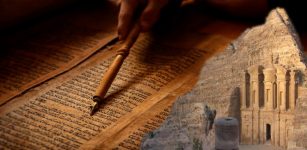 Selah – Mysterious Biblical Word Of Unknown Meaning
Biblical Mysteries | Jan 5, 2018
Selah – Mysterious Biblical Word Of Unknown Meaning
Biblical Mysteries | Jan 5, 2018 -
 Viking Children Were Buried With Extremely Sharp Knives – Afterlife Tools To Be Used In Valhalla?
Ancient History Facts | Nov 29, 2017
Viking Children Were Buried With Extremely Sharp Knives – Afterlife Tools To Be Used In Valhalla?
Ancient History Facts | Nov 29, 2017 -
 47,000 Years Of Aboriginal Heritage Was Destroyed In Mining Blast – Results From Juukan Gorge Show
Featured Stories | Jul 22, 2024
47,000 Years Of Aboriginal Heritage Was Destroyed In Mining Blast – Results From Juukan Gorge Show
Featured Stories | Jul 22, 2024 -
 Mystery Of The Ancient Reptilian Gods Remains A Complex Subject – Alien Worlds – Part 2
Ancient Mysteries | Feb 9, 2022
Mystery Of The Ancient Reptilian Gods Remains A Complex Subject – Alien Worlds – Part 2
Ancient Mysteries | Feb 9, 2022 -
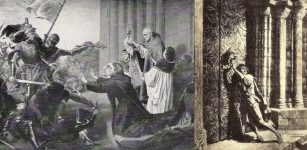 Medieval Criminals Could Avoid Persecution By Claiming Sanctuary In Churches
Ancient History Facts | Mar 3, 2017
Medieval Criminals Could Avoid Persecution By Claiming Sanctuary In Churches
Ancient History Facts | Mar 3, 2017 -
 Why Are Christmas Ghost Stories So Fascinating?
Christmas Traditions | Dec 24, 2019
Why Are Christmas Ghost Stories So Fascinating?
Christmas Traditions | Dec 24, 2019 -
 Ashvins: Vedic Twin Gods Of Medicine And Healing Were Skilled Surgeons
Featured Stories | Feb 1, 2019
Ashvins: Vedic Twin Gods Of Medicine And Healing Were Skilled Surgeons
Featured Stories | Feb 1, 2019 -
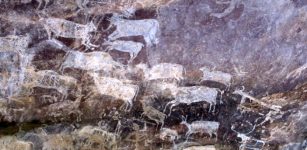 Bhimbetka: Gigantic Open Air Repository Of Prehistoric Art In India
Featured Stories | Jun 11, 2016
Bhimbetka: Gigantic Open Air Repository Of Prehistoric Art In India
Featured Stories | Jun 11, 2016 -
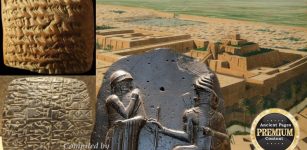 How Did Mesopotamia Change The World?
Civilizations | Jan 18, 2020
How Did Mesopotamia Change The World?
Civilizations | Jan 18, 2020 -
 Strange Encounter With A Supernatural Being In The 1790s
Ancient Mysteries | Jan 12, 2020
Strange Encounter With A Supernatural Being In The 1790s
Ancient Mysteries | Jan 12, 2020 -
 Clues To The Mysterious Dog-Headed St. Christopher And His Connection To The Egyptian Jackal God Anubis Found?
Featured Stories | Jan 14, 2025
Clues To The Mysterious Dog-Headed St. Christopher And His Connection To The Egyptian Jackal God Anubis Found?
Featured Stories | Jan 14, 2025 -
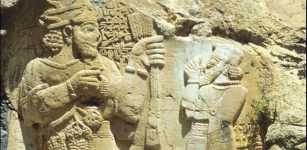 Ivriz Relief: 3,000-Year-Old Hittite Relief – Oldest Known Symbol Of Agricultural Fertility In History
Artifacts | Jun 13, 2019
Ivriz Relief: 3,000-Year-Old Hittite Relief – Oldest Known Symbol Of Agricultural Fertility In History
Artifacts | Jun 13, 2019 -
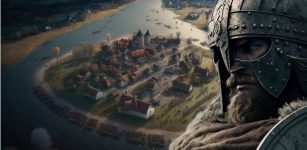 Has The Legendary Viking Stronghold Jomsborg Finally Been Found?
Archaeology | Jun 3, 2023
Has The Legendary Viking Stronghold Jomsborg Finally Been Found?
Archaeology | Jun 3, 2023 -
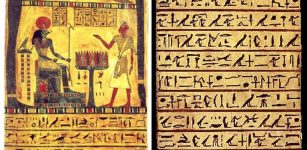 Strange History Of Stele Of Ankh-ef-en-Khonsu – ‘Stele Of Revealing’ Gave Birth To Thelema, A New Religion
Artifacts | Apr 3, 2018
Strange History Of Stele Of Ankh-ef-en-Khonsu – ‘Stele Of Revealing’ Gave Birth To Thelema, A New Religion
Artifacts | Apr 3, 2018 -
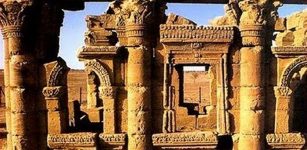 Ancient Great City Of Napata In The Kingdom Of Kush
Civilizations | Dec 30, 2015
Ancient Great City Of Napata In The Kingdom Of Kush
Civilizations | Dec 30, 2015 -
 Terracina – Ancient City Where Mythology And History Meet
Featured Stories | Jan 16, 2024
Terracina – Ancient City Where Mythology And History Meet
Featured Stories | Jan 16, 2024 -
 Gigantic Viking Age Burial Ground With Artifacts And 50-Meter-Long Shipwreck Unearthed In Tvååker, Halland, Sweden
Archaeology | Oct 18, 2024
Gigantic Viking Age Burial Ground With Artifacts And 50-Meter-Long Shipwreck Unearthed In Tvååker, Halland, Sweden
Archaeology | Oct 18, 2024 -
 The Mystery Of Blinking Mummy Of Rosalia Lombardo
Featured Stories | Jun 23, 2014
The Mystery Of Blinking Mummy Of Rosalia Lombardo
Featured Stories | Jun 23, 2014 -
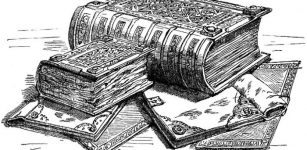 ‘The Domesday Book’ Of William I The Conqueror: Detailed Register Of ‘Who Owned What’ In England
Ancient History Facts | Jan 11, 2017
‘The Domesday Book’ Of William I The Conqueror: Detailed Register Of ‘Who Owned What’ In England
Ancient History Facts | Jan 11, 2017

